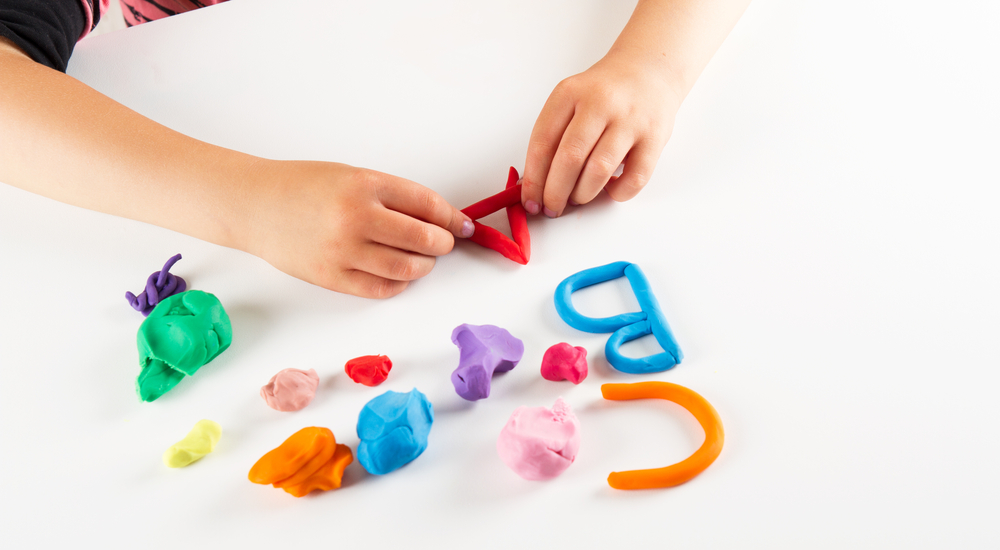Enhancing problem-solving skills Normal Worksheets for Ages 3-6
6 filtered results
-
From - To
Enhance your child's problem-solving skills with our specially designed normal worksheets for ages 3-6. At Kids Academy, we believe in nurturing young minds through engaging and educational activities. Our printable worksheets focus on developing critical thinking, logical reasoning, and decision-making abilities in a fun and approachable manner. Suitable for preschool and kindergarten children, these worksheets cover a variety of topics including puzzles, matching games, and simple math problems. By integrating play and learning, we help your child develop essential skills that build a strong foundation for future academic success. Explore our collection and watch your child thrive!
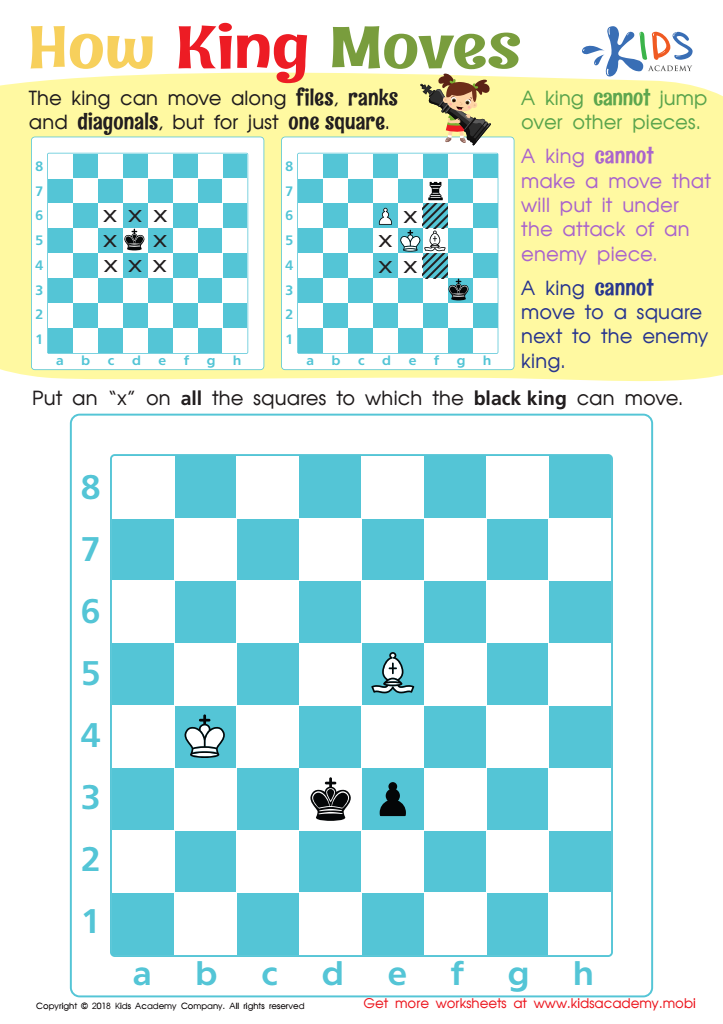

How King Moves Worksheet
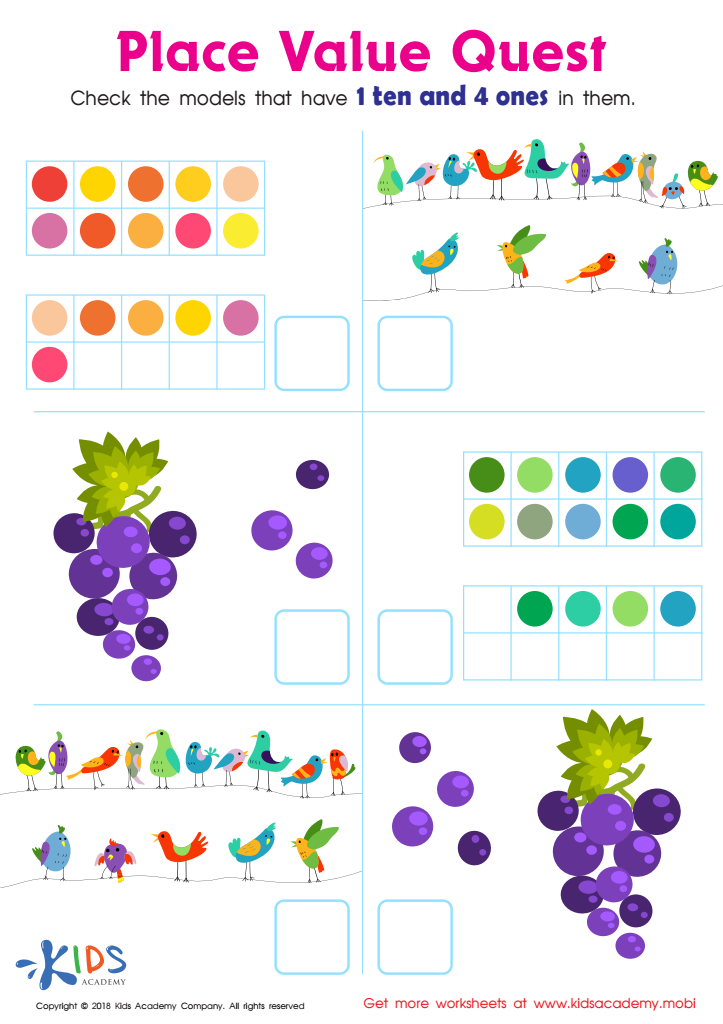

Place Value Quest Worksheet
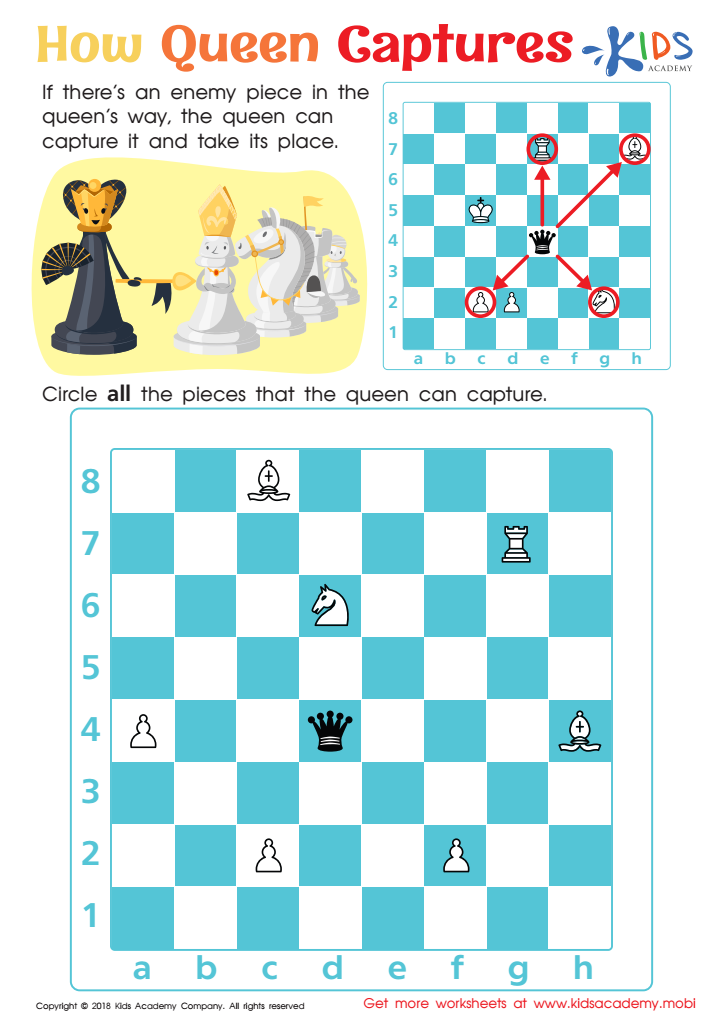

How Queen Captures Worksheet
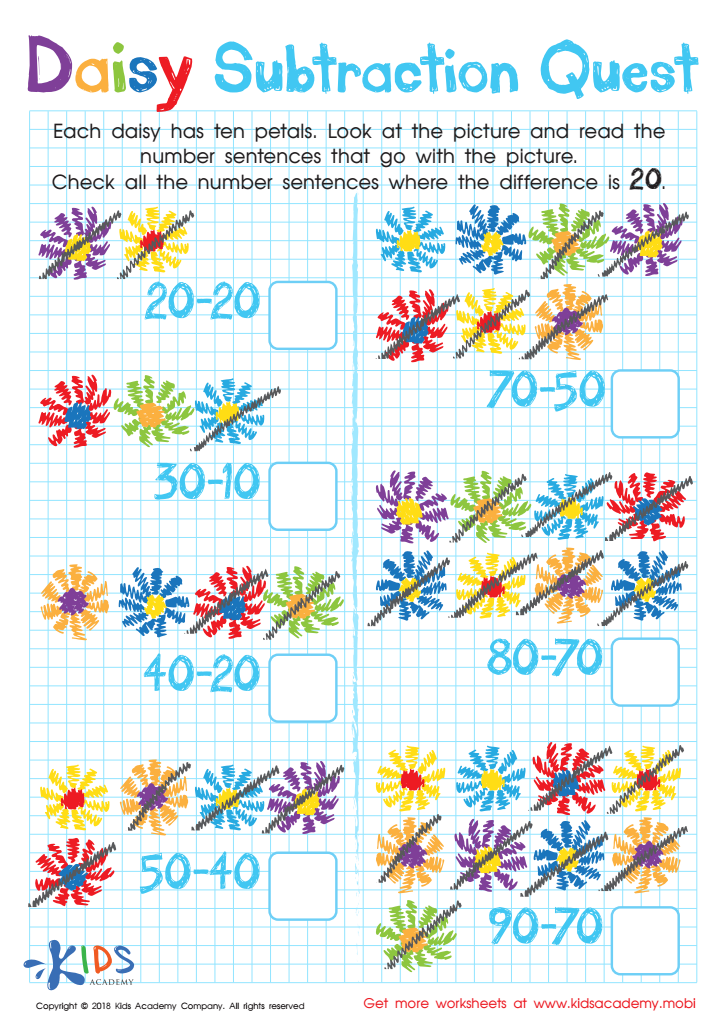

Daisy Subtraction Quest Worksheet
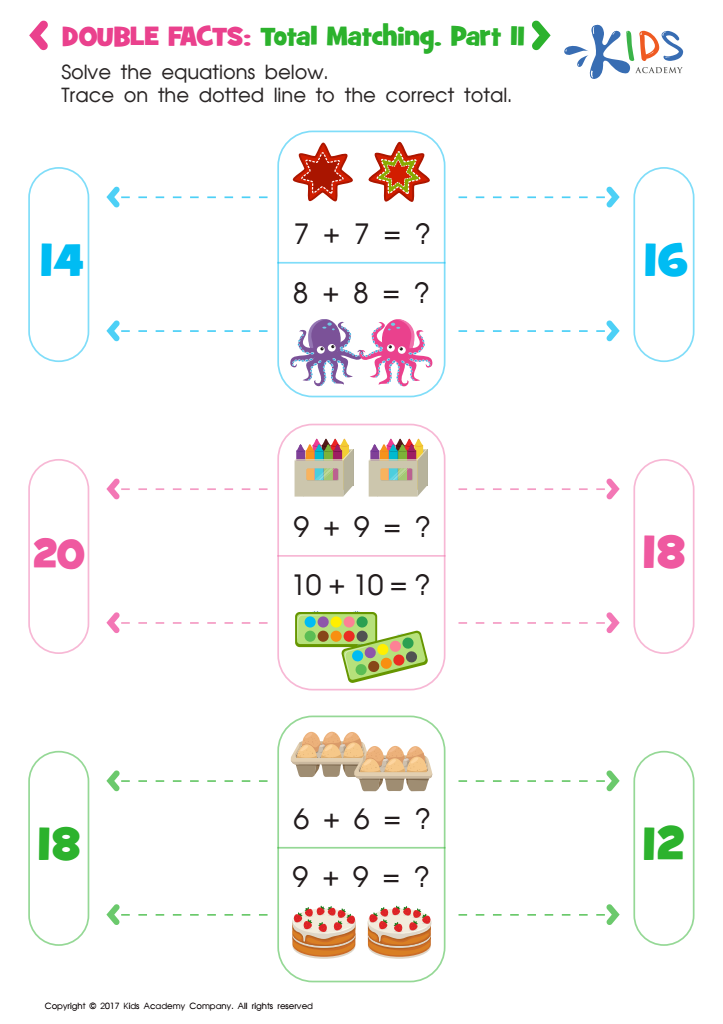

Double Facts: Total Matching 2 Worksheet
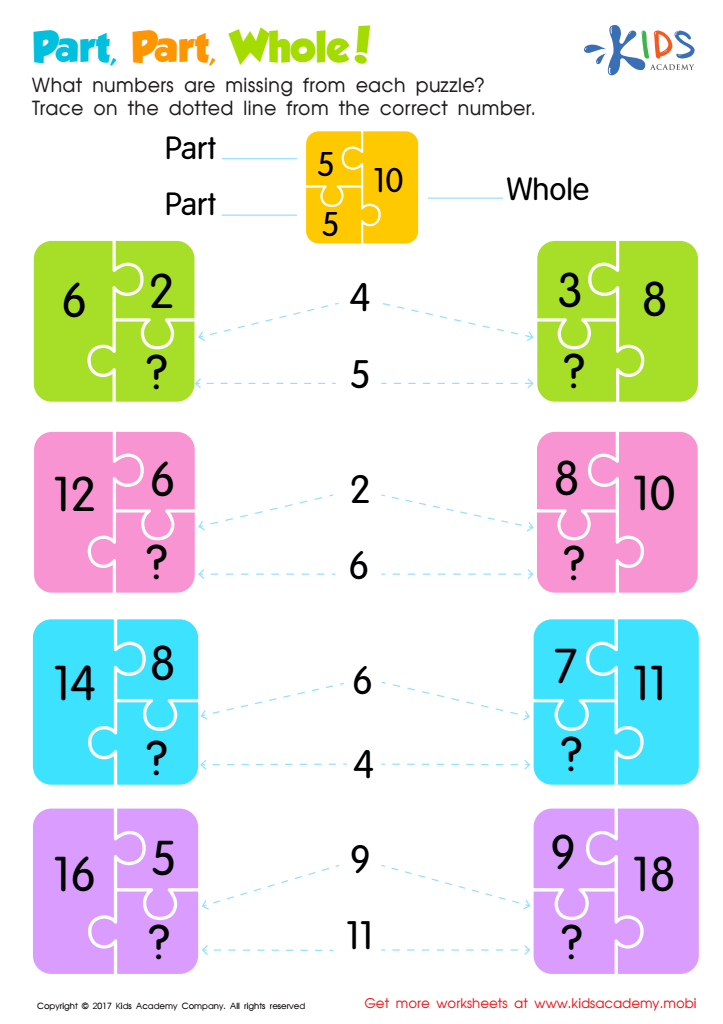

Part, Part, Whole Worksheet
Parents and teachers should prioritize enhancing problem-solving skills for children aged 3-6 because these skills lay the foundation for cognitive and social development. At this formative stage, children's brains are like sponges, highly receptive to new information and ways of thinking. Encouraging problem-solving skills helps foster critical thinking, enabling children to navigate challenges independently. This builds resilience and self-confidence, essential traits for academic and life success.
Engaging in problem-solving activities like puzzles or group play enhances cognitive abilities like reasoning, memory, and attention. These activities provide children with the tools to understand cause and effect, make decisions, and reflect on outcomes—competencies vital for future learning, particularly in subjects like math and science.
Furthermore, problem-solving promotes social skills. When children work together to solve problems, they learn to communicate effectively, share ideas, and compromise. This collaborative spirit helps in developing empathy and teamwork capabilities.
For parents and teachers, focusing on these skills means equipping children with the ability to face real-world scenarios calmly and creatively. Integrating problem-solving into early education ensures a well-rounded development, preparing children not just academically, but also fostering essential life skills that contribute to their overall well-being and future success.
 Assign to My Students
Assign to My Students




